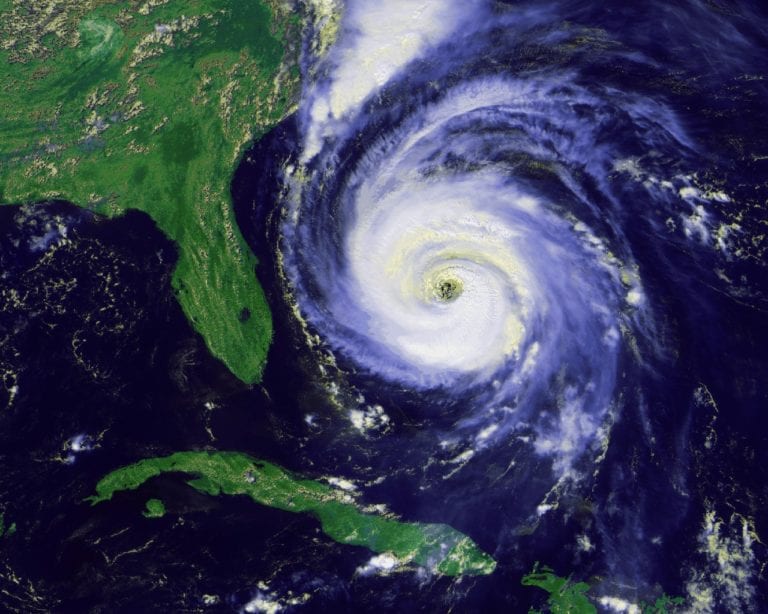By Kyle Ulrich
Back in September, I blogged about the troubled Florida property market and the second quarter financial results for the domestic homeowners market. Now that third quarter results have been published, it is clear the market is continuing to deteriorate and looks like it will only get worse before it gets better. Again, this is no secret to independent agents, but it is important that you have a clear understanding of both the severity and primary cause of the problem.
Guy Carpenter’s summary of 2020 third quarter financial results was abysmal and showed that Florida domestic property insurers posted a net underwriting loss of $1.142 billion. Yes, that is billion with a “b,” and is compared to a $432 million loss in the Q3 of 2019, and $501 million loss in the Q2 of 2020. As you might expect, losses in net income were almost as bad, resulting in a $636 million net loss for the third quarter, compared to $180 million in the Q3 of 2019 and $227 million in the Q2 of 2020. The average combined ratio also followed suit, rising to 128 percent from 112 percent in the Q3 of 2019.
FAIA members continue to receive notice after notice from carriers restricting new business and imposing more restrictive underwriting guidelines for the purpose of “exposure management.”
While Florida certainly had an active storm season in 2020, out-of-control litigation is the primary driver behind these losses and, in turn, “exposure management” measures.
As cited by Scott Johnson in his recent blog, “Litigation Reality Check – “Stick and Carrot “, lawsuits are up 400 percent since 2015, have doubled from 2017 to 2019 (45,000 to 92,000), and are on pace to exceed last year’s total. In fact, CaseGlide reports that September’s total of 4,918 increased from August, which was 4,590, and is an increase of 28 percent from September of 2019. That’s an annual pace of close to 60,000 lawsuits for just one line of insurance in just one state.
Litigated claims are 500 percent more expensive than non-litigated claims. For example, according to one large carrier, the average incurred loss on a litigated claim is $44,838 vs. $8,209 for non-litigated claims, a difference of $36,629.
For a big scare, do the math: 60,000 claims that cost $36,629 additional dollars, equals almost $2.2 billion (with a “b”) a year, just for the litigated claims.
South Florida Attorney Scot Strems is the poster child for fraud and abuse, and has been extensively written about recently, including a series of blogs by Scott Johnson. An excerpt from one of Scott’s blogs sums up the Strems scheme to defraud insurance carriers:
Based on my opinion of the allegations and supporting documents, one firm with only 20 attorneys is using various forms of subterfuge to process or ignore up to 10,000 lawsuits using three prime tactics: one, multiple claims/lawsuits filed for a single location, loss or risk; two, utilizing feeders armed with tablets it gathers electronic signatures on contingency agreements concomitant with work authorization orders, and; three, it applies a sophisticated assembly-line style to manage a high volume of cases at least some of which have inflated billable hours and/or fraudulently acquired contingency fees.
The Florida Bar (Florida attorneys’ governing body) alleged numerous violations of his license and requested that the court permanently disbar Strems for his scheme to defraud insurance carriers. The court found him guilty of those violations, but, unfortunately, did not disbar Strems (they still could do this by overriding the referee’s recommendations but not likely), and instead recommended his license be suspended for only two years plus one year of supervised probation. While the Stems case has certainly been the most publicized, there is reason to believe that other attorneys are doing some of the things Strems has been doing. The top 25 firms in terms of number of property suits filed are responsible for 43 percent of all suits. How many other attorneys in Florida may be engaging in unscrupulous practices that lead to higher rates and decreased availability of homeowners insurance?
With the 2020 legislative session right around the corner, there is no shortage of proposals on how to “fix” the market. Many revolve around attorney fee reform, including bills that would undo a Florida Supreme Court decision on attorney fee multipliers or enact litigation reform measures similar to those passed in Texas. Other proposals would make changes to the CAT Fund or afford increased flexibility to carriers when providing coverage options. One thing that is certain is the upcoming fight with Florida’s plaintiff’s attorneys, who have a tremendous amount of money and political influence in Tallahassee. The time is NOW for the industry to come together and advocate for legislative reforms to stabilize and insure the long-term viability of the market for Florida’s consumers.
Agents and companies MUST do a better job informing policyholders and legislators of what is contributing to these problems. FAIA is currently working closely with both individual carriers and trade associations to develop a comprehensive public awareness initiative, and hope to have details of that in the coming weeks.
You may have also seen earlier this week that we had to make the difficult decision to cancel our annual Capitol Days event in Tallahassee. The good news is our virtual event will give the opportunity for more agents to engage in the political process without having to travel to Tallahassee for two days. Please be on the lookout for details on Political Engagement Month, and plan to participate. Together with our industry partners, we can be successful!


